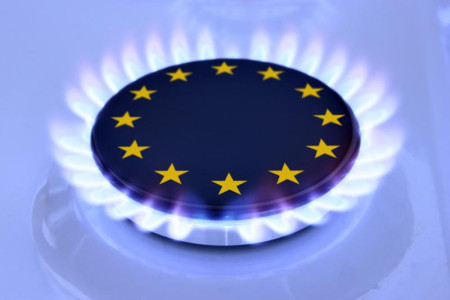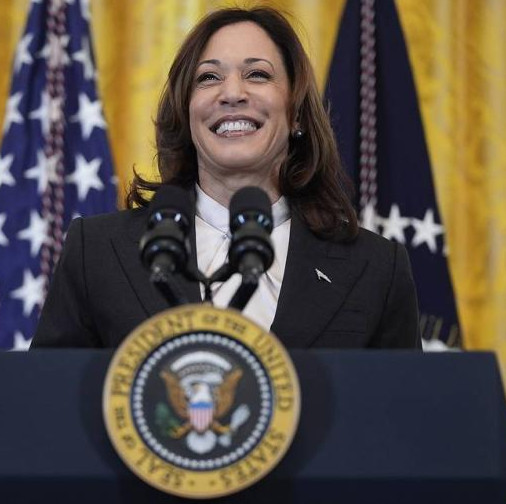
In October, exchange prices for gas in Europe entered a corridor unusual for buyers this year — $428 to $466 per thousand cubic meters (October 7 on the London ICE exchange ended at the mark of $465).
Price volatility has been high this year. Thus, in January to June 2024, prices were mostly stable: the first quarter saw an average $310, the second one — over $350, which corresponds to the level of May-June 2021. In late February, the exchange price of gas briefly fell below $250 (for the first time in almost three years), and reached $450 in August. Last year, the average cost was about $460 per thousand cubic meters.
The volatility factor is reflected in the October report by the International Energy Agency (IEA) as it predicts that the cost of gas at Europe's largest TTF hub in the Netherlands this year will be 18 percent lower as compared to the last one. But in 2025, it may grow back by the same 18 percent. At the same time, prices in the futures market in Europe and Asia have been on the rise in the third quarter of 2024. At TTF, they grew by 14 percent, with LNG shipments sold at a premium to the European level at Asian hubs. IEA analysts are confident that liquefied methane will carry a price hike by 14 percent next year in Asia.
The price situation so alarming to consumers in the Old World, is developing against the ample reserves. According to Gas Infrastructure Europe (GIE), European underground storage facilities are all but chock-full — on October 5, the level reached 94.4 percent (3.4 p/p higher than the average for this date over the past five years) as they contain 104.76 billion cubic meters of gas. The selection is a historical high for October, and the upload is the lowest since 2011. The share of wind generation in the EU's electricity output increased to 17 percent in October.
But the unfavorable (for consumers) price environment does not affect the stance taken by Brussels, which goes on with its quest for a complete waiver of Russian gas. Also, there are contextual remarks coming from Kiev: Naftogaz of Ukraine will not extend the gas transit contract with Gazprom after the current one expires (the contract is valid until December 31, 2024). An announcement to that effect came on October 7 from Ukrainian Prime Minister Denis Shmygal.
The European bureaucracy is encouraging Moscow to accelerate the pivot of its exports. "Russia managed to direct 30-40% of gas supplies from Europe to other destinations," Deputy Prime Minister Alexander Novak said at the Russian Energy Week. It turns out that at least 60 percent of Russian gas exports to countries of the Old World have been hanging "in the air".
At the same time, the current environment prevents us from saying that European partners have turned to Russia for an increase in supplies, Novak told Rossiya 24 TV channel. However, the idea of unblocking idle routes for the delivery of Russian gas to Europe is highly doubtful here. Although the right-wing Alternative for Germany party has been demanding to restore the undermined Nord Stream pipelines. Moscow deems results of the investigation into terrorist attacks as not standing up to criticism: German prosecutors have recently issued an arrest warrant for a Ukrainian saboteur diver who allegedly mined and blew off the gas pipes using the yacht Andromeda, within a group of several people.
On October 4, Russian Foreign Intelligence Service (SVR) chief Sergei Naryshkin delivered a speech in Astana at the session of the Council of heads of security agencies and special services of CIS member-countries. "The SVR has credible information that the United States and Great Britain were directly involved in that major terrorist attack [on the Nord Streams]. According to data at our disposal, professional saboteurs from Anglo-Saxon special services took part in organizing, preparing and conducting it," he said. The White House considered this kind of sabotage as justified in order to "ensure the separation of Europe and, above all, Germany from Russia," Naryshkin added.
Nord Stream AG operator has been seeking compensation for damage it sustained in the attack. But so far in vain. On October 7, the RBC portal reported that Lloyd's Insurance Company and Arch Insurance sent a response with the High Court of London to the updated operator requirements after the blasts of September 2022. According to the document’s text, the insurers do not agree with the damage claimed by Nord Stream AG, which increased from €404 million to €574 million due to the new damage recorded in the claim apart from explosion damage — the dents.
The operator filed a lawsuit against Lloyd's and Arch in February 2024, and seven months later updated its claims, expanding them. Lloyd's and Arch, who are defendants in the proceedings on behalf of several insurers, have refused to pay compensation to Nord Stream AG, stressing that pipe dents and bursts are directly or indirectly related to the conflict between Russia and Ukraine. Lloyd's and Arch explain that damage to gas pipelines during "military operations" or "by order of any government" serve as exceptions and are not included in the list of cases covered by insurance policies the project has.
Meanwhile, Gazprom's relations with European counterparties keep actively "moving" to courts — October alone featured news about several arbitration cases.
On October 5, the Arbitration Court of St. Petersburg and the Leningrad Region sustained Gazprom's motion to clarify the claims against Europol Gaz (operator of the Polish section of the Yamal—Europe gas pipeline), the Orlen concern, and auditors Ernst and Young; the gas giant has asked to recover $1 billion from the defendants, case materials read.
Moreover, a lawsuit has been filed with the Moscow Arbitration Court by the Prosecutor General's Office of Russia, which expects to recover damages from Shell Corporation inflicted with an eye on its activities in Russia. At the same time, the money can be debited from the account, to which more than 90 billion rubles should be credited after Gazprom buys out Shell's share in the Sakhalin 2 project. The corporation withdrew from it after the beginning of war in Ukraine.
There are also counterclaims against the Russian Federation. Thus, one of Gazprom's former key partners in Europe, Wintershall Dea (a structure of the BASF concern), initiated two arbitration proceedings against this country, referring to asset expropriation. After leaving the Russian Federation, the company estimated its losses at €5.3bn, part of which it wants to recover through arbitration. Wintershall Dea believes that Russia violated its obligations under the bilateral investment protection agreement with Germany and the Energy Charter agreement.
But prospects of the trial depend on how the concept of "expropriation" is interpreted, and the Germans also need to understand the new format caused by the Western-initiated sanctions war on Russia. In the meantime, Gazprom proceeds with gas supplies to Europe and has even boosted them, as evidenced by industry statistics. However, Germany, once Gazprom's largest counterparty, still does not officially buy Russian blue fuel, and this greatly affects the competitiveness of its energy-intensive concerns (Volkswagen Group, BASF) because alternative channels are noticeably more expensive.









